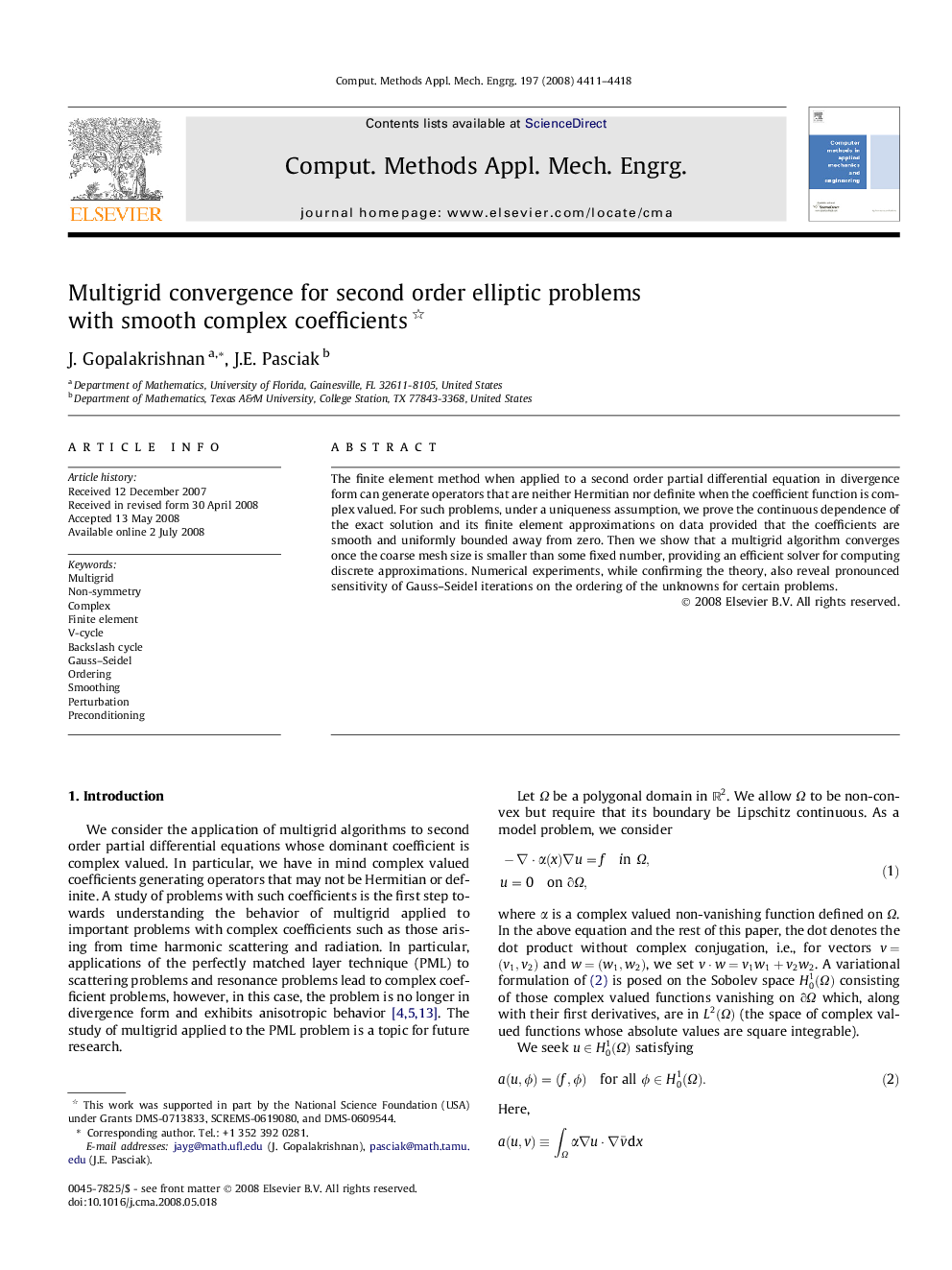| Article ID | Journal | Published Year | Pages | File Type |
|---|---|---|---|---|
| 499643 | Computer Methods in Applied Mechanics and Engineering | 2008 | 8 Pages |
The finite element method when applied to a second order partial differential equation in divergence form can generate operators that are neither Hermitian nor definite when the coefficient function is complex valued. For such problems, under a uniqueness assumption, we prove the continuous dependence of the exact solution and its finite element approximations on data provided that the coefficients are smooth and uniformly bounded away from zero. Then we show that a multigrid algorithm converges once the coarse mesh size is smaller than some fixed number, providing an efficient solver for computing discrete approximations. Numerical experiments, while confirming the theory, also reveal pronounced sensitivity of Gauss–Seidel iterations on the ordering of the unknowns for certain problems.
